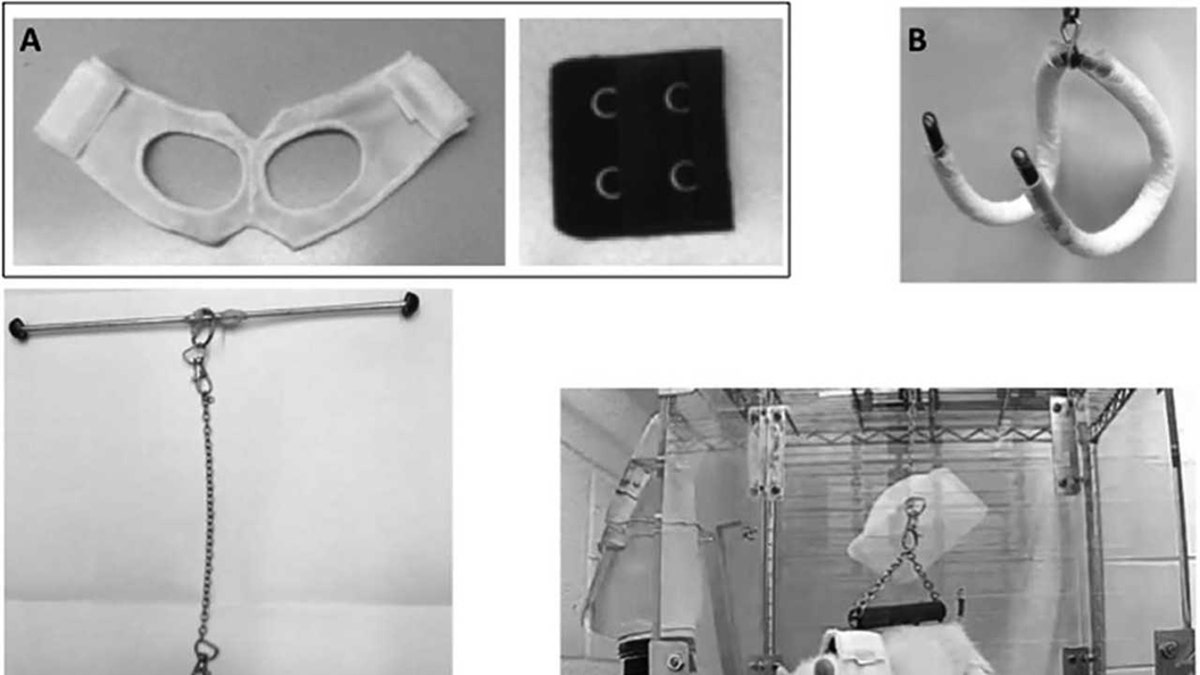Fox News Flash top headlines for July 25
Fox News Flash top headlines for July 25 are here. Check out what's clicking on Foxnews.com
Life on Mars would be tough. One day the weather can be a pleasant 70 degrees, only to plummet down to 100 below zero that night. The pesky summertime dust storms that can darken the atmosphere for months on end can also be a concern.
A more immediate issue that astronauts on Mars would have to deal with is the partial gravity. The Red Planet’s gravitational pull is approximately 40 percent that of Earth’s, which can take a toll on the human body, causing weight-bearing bones to weaken and less-challenged muscles to atrophy.
While astronauts floating around in the International Space Station (ISS) would have access to exercise machines to counteract these effects, they would have no such equipment on Mars. The gains they'd have from pumping iron at the Gold’s Gym ISS would be gone fast. However, researchers from Harvard might have found a dietary supplement that can counteract this problem: resveratrol, an antioxidant found in grape skin, blueberries and perhaps most famously, red wine.

"Development of the quadrupedal suspension device and the housing environment for the rat model of partial weight bearing. Photographs of the rodent jacket composed of a tether jacket and a back bra extender (A), the pelvic harness (B), the entire quadrupedal suspension device (C), and the rat undergoing partial weight bearing (PWB) in this novel environment (D)." (Credit: Mortreux et al. 2018 Journal of Applied Physiology.)
NASA IS BUILDING ROBOTS THAT CAN CLIMB MARS, INCLUDING AN 'ICE WORM'
The study's lead author, Dr. Marie Mortreux, a researcher from Harvard’s Department of Neurology at Beth Israel Deaconess Medical Center, became familiar with the compound while studying diabetes and obesity, and was also aware of its potential effects on muscle growth.
“Previous studies in astronauts and ground-based analogs have shown that weightlessness induced insulin-resistance in the muscle, and resveratrol is extensively known for its anti-diabetic effects,” Mortreux told Fox News. “Also, studies have shown that resveratrol could prevent bone loss during unloading [removing the vertical forces acting on the animal], and increase muscle weight in diabetic animals.”
The research was published in the scientific journal Frontiers.
To test resveratrol’s potential effects against muscle atrophy on Mars, Mortreux’s team constructed a special apparatus to simulate the Red Planet’s gravity.
“We adapted the idea from the study of Mary Bouxsein in mice, and fitted our rats with tailored jackets and pelvic harnesses,” Mortreux said. “These two items were then linked by a triangle-shape stainless steel chain and attached at the top center of the cage [and] by adjusting the length of the chain we were able to decrease the weight-bearing of our animals while still allowing a relatively normal behavior, and quadrupedal posture.”
Half of the 24 rats experienced normal loading (equivalent to Earth’s gravity) and the other half experienced 40 percent loading, the equivalent to Mars’ gravity. Six rats in each group were given only water to drink, while the other six were given 150mg of resveratrol daily. All of them ate the same food.
The team performed weekly measurements of the rats’ calf muscle circumference and rear paw grip force. What the researchers found was astounding– the rats that were only given water “on Mars” had weakened grip and shrunken calf muscles, but the rats that received resveratrol had the same muscle mass and almost as strong of a grip as the non-supplemented rats “on Earth.”
NASA, MIT ENGINEERS RE-IMAGINE AIRPLANE WING, UNVEIL FUTURISTIC NEW DESIGN
So does this mean that if astronauts guzzle red wine on Mars they’ll stay in good shape and not lose any muscle? Unfortunately no, according to Mortreux.
“While red wine and other sources of resveratrol are well known, they do not contain enough (at all) to match the dose given to my rats (which would be approximately 1500 mg),” she added. “However, resveratrol is widely available over the counter and from online vendors, and pills usually come in doses of 500 mg or 1000 mg. Moreover, it would drastically reduce the space taken in the aircraft by just using the pills.”
Future studies from Mortreux and her team will focus on the mechanisms involved, and will also look to see if females react similarly to males. They plan to investigate other doses in case there is a dose-dependent effect, and want to experiment on rats to see how they would do on the Moon.









































